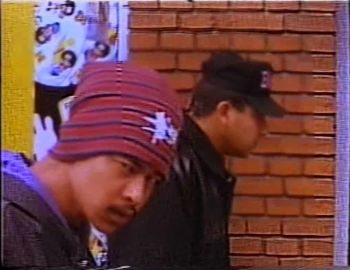
Twenty years ago, an album by Prophets of da City (Age of Truth) was banned for its critical stance toward the drive for reconciliation while the ANC and NP were warily locked in negotiations about South Africa’s political future. The treatment of this key hip-hop album by the censorship board and the SABC, even after 1994, is a testimony to the culture of censorship that pervaded both the apartheid and post-apartheid eras.
Two decades later, we see debates about a Media Appeals Tribunal and the passing of the Protection of State Information Bill as a potential return to the apartheid state’s intolerance toward free speech and access to information. The ANC’s response to the work of artist Brett Murray as well as the coverage of his critique of President Jacob Zuma by newspapers, like City Press, are indicators of possible shifts toward a less tolerant political climate.
UCT Summer School marks the twentieth anniversary of South Africa’s democratic elections by presenting lectures on hip-hop activism with a special focus on the work of Age of Truth by Prophets of da City. Key participants include founding Prophets of da City member DJ Ready D, rated as one of the top DJs in the world. Ready D will join Adam Haupt in lectures on hip-hop history, its politics as well as a panel discussion on Age of Truth.
The lectures aim to do two things. Firstly, it aims to validate an area of cultural expression that has been largely ignored by South African scholars and journalists, save for US-inspired tabloid fixations on the materialist (or bling) aspects of mainstream gangsta rap and R&B that often glorifies violence and objectifies women. Many people outside of South Africa’s hip-hop circles may not know about the great linguistic, political and aesthetic diversity that the art form embraces.
Secondly, UCT’s decision to present lectures on hip-hop at Summer School speaks to a desire to transform the institution, not merely via equity appointments or student admissions, but via tweaking curricula so that they remain relevant and topical. Since the early 90s, hip-hop and kwaito have been regarded as the soundtracks of emerging black youth cultures. A key question for UCT Summer School is how one speaks that generation as it matures? One answer to that question is to create space for the newer, more diverse forms of cultural expression in curricula, including those at Summer School.
The lectures promise to provide an opportunity to debate key shifts in hip-hop race and gender politics in the country as well as in relation to arguments about US cultural imperialism. It will also allow participants to consider key changes and continuities in the South African context via one of the most provocative art forms to emerge on a global scale.
While some critics would contend that hip-hop’s global appeal is a signifier of the negative aspects of globalisation (such as the homogenisation of market monopolisation), others would argue that hip-hop’s uptake by a diverse range of often marginal communities around the world is actually a signifier of agency on a global scale: the very means (global communication technology and representational systems) that can be used to extend the influence of global elites can also be used by marginal subjects to challenge the power of elites and to ‘re-purpose’ technologies and dominant cultural forms to articulate resistance and creativity at grassroots levels.
Join us at UCT Summer School’s “Hip-Hop Activism” lectures to decide where you stand on this ongoing debate.
 SLiPStellenbosch Literary Project
SLiPStellenbosch Literary Project 